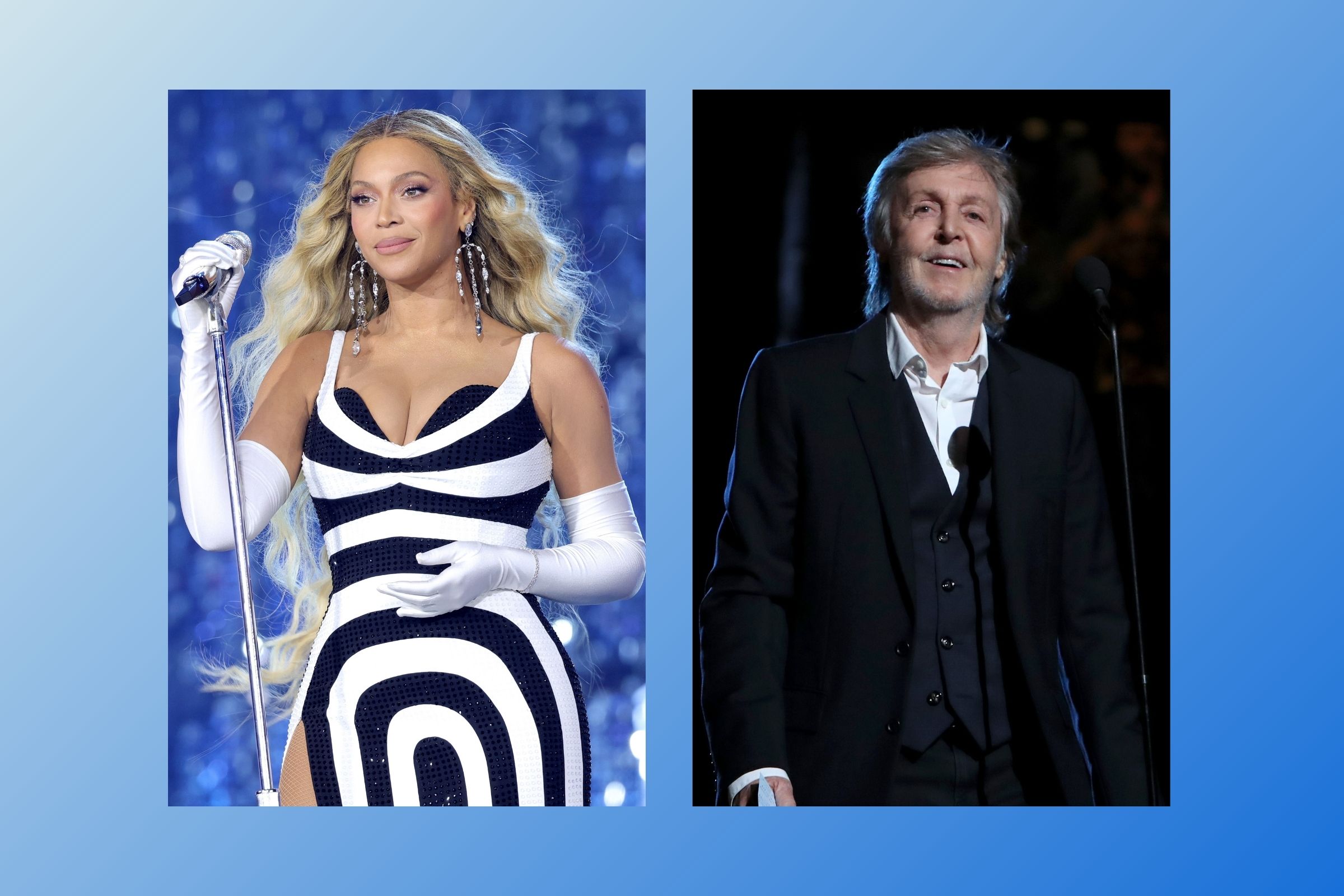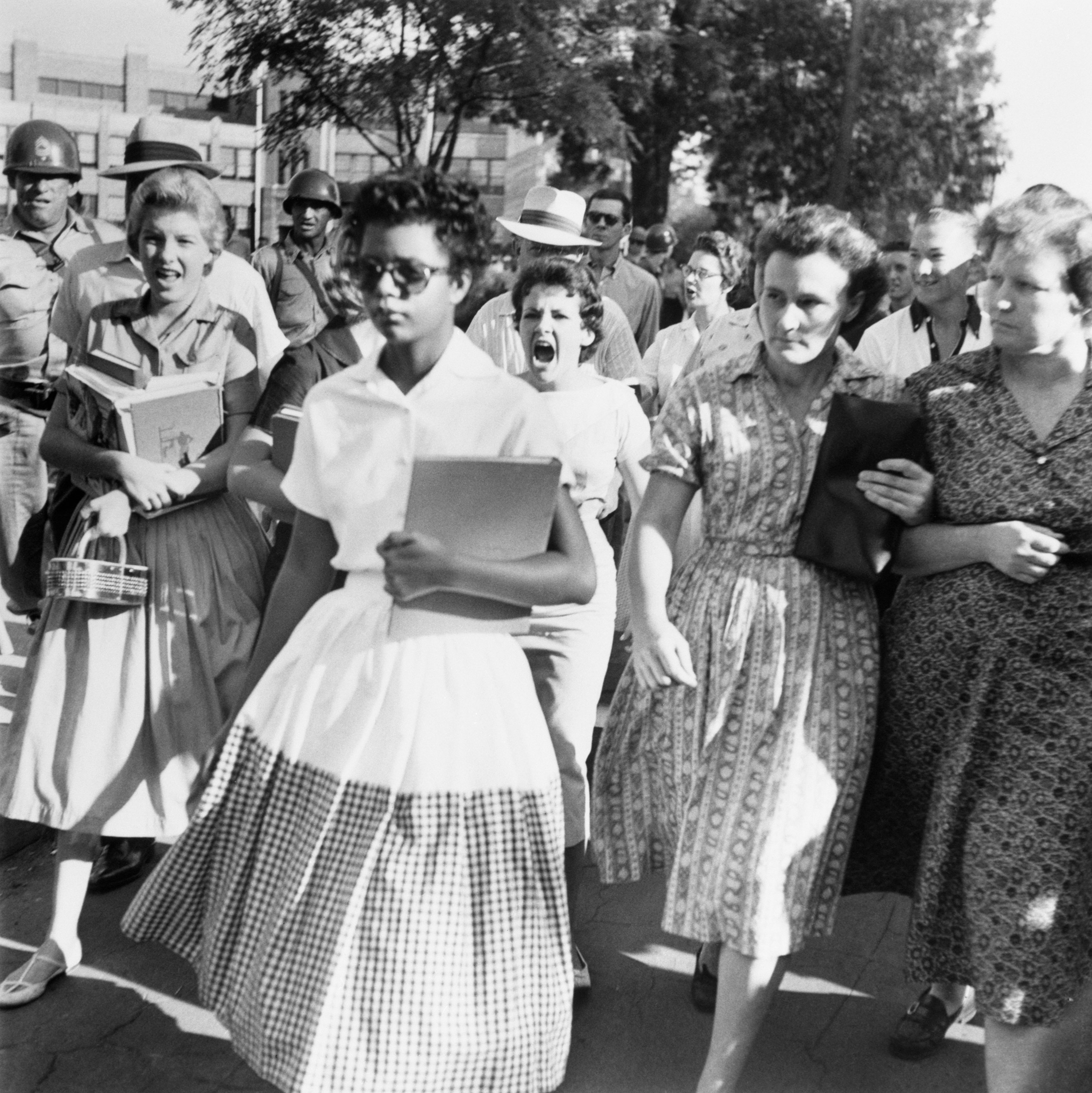
Beyoncé's eighth studio album Cowboy Carter, the second act of her three-part project, released at midnight on Friday. One of the most striking songs of its 27 tracks is a soulful cover of the Beatles' "Blackbird," which features a quartet of Black country singers: Tanner Adell, Tiera Kennedy, Brittney Spencer and Reyna Roberts.
The inclusion of "Blackbird" (styled as "Blackbiird" on Cowboy Carter, in keeping with the act ii theme) may come as a surprise to some; for one, in recent years, Beyoncé has rarely done covers of other artists' songs. For another, though Beyoncé has been clear that her new album "ain't a country album, this is a Beyoncé album," many of the songs on the album are firmly in the country space, making her inclusion of the decidedly folk rock classic "Blackbird" especially significant.
Read more: Everything We Know About Beyoncé’s New Album Cowboy Carter
"Blackbird," which was written by Paul McCartney and John Lennon and included on their 1968 self-titled album, is a song about hope and survival, with lyrics that encourage the titular bird to "take these broken wings and learn to fly." However, throughout the years, McCartney has been vocal about the song being inspired by the American civil rights movement and specifically the Little Rock Nine, the trailblazing nine Black students in 1957 who faced immense discrimination after they enrolled in a formerly all-white high school following the landmark Brown vs. Board of Education ruling.

In a 2019 interview with GQ, McCartney detailed how this struggle for racial justice inspired him and Lennon across the pond.
"I was sitting around with my acoustic guitar and I'd heard about the civil rights troubles that were happening in the '60s in Alabama, Mississippi, and Little Rock in particular. So that was in my mind and I just thought, 'It'd be really good if I could write something that if it ever reached any of the people going through those problems, it might kind of give them a little bit of hope,' so I wrote 'Blackbird.'
Read more: ‘I Had a Right to Be at Central’: Remembering Little Rock’s Integration Battle
He also shared that he wrote the song specifically with Black women in the civil rights movement in mind, which makes Beyoncé's decision to cover it with all Black female country artists especially significant.
"In England, a bird is a girl, so I was thinking of a Black girl going through this—you know, now's your time to arise, set yourself free, and take these broken wings. One of the nice things about music is that you know a lot of people listening to you are going to take seriously what you're saying in the song. So I'm very proud of the fact that the Beatles output is always really pretty positive," he said.
In 2016, nearly 60 years after "Blackbird" made its debut, McCartney met two members of the Little Rock Nine, Thelma Mothershed Wair and Elizabeth Eckford, after performing a concert in North Little Rock, AR.
"It's a really important place for us because this is, to me, where civil rights started," McCartney said during the concert. "We would see what was going on and sympathize with the people going through those struggles, and it made me want to write a song that if it ever got back to the people going through those struggles, it might just help them a little."
The song has been covered extensively over the years, by everyone from the Foo Fighters’ Dave Grohl to Sarah McLachlan. Now, Beyoncé's version featuring Adell, Kennedy, Spencer, and Roberts serves as a reminder of the Black women at the forefront of the racial justice movement. It also draws a parallel between the ways in which Black artists and particularly Black women artists still have to fight for space in the industry, especially in the country genre, which has historically been less than welcoming to non-white and women artists.
Following the release of Cowboy Carter, McCartney took to Instagram to share his feelings about Beyoncé’s cover of “Blackbird.”
“I am so happy with @beyonce’s version of my song ‘Blackbird’. I think she does a magnificent version of it and it reinforces the civil rights message that inspired me to write the song in the first place,” he wrote in the post. “I think Beyoncé has done a fab version and would urge anyone who has not heard it yet to check it out. You are going to love it!”
McCartney also shared that he spoke personally to Beyoncé on FaceTime about the song, a call where she thanked him for writing the song and allowing her to cover it, to which he responded that the “pleasure was all mine.” He also emphasized that he felt that Beyoncé’s cover also centered the same message of racial justice that inspired him to originally write the song.
“When I saw the footage on the television in the early 60s of the black girls being turned away from school, I found it shocking and I can’t believe that still in these days there are places where this kind of thing is happening right now,” he wrote. “Anything my song and Beyoncé’s fabulous version can do to ease racial tension would be a great thing and makes me very proud.”
More Must-Reads from TIME
- Cybersecurity Experts Are Sounding the Alarm on DOGE
- Meet the 2025 Women of the Year
- The Harsh Truth About Disability Inclusion
- Why Do More Young Adults Have Cancer?
- Colman Domingo Leads With Radical Love
- How to Get Better at Doing Things Alone
- Michelle Zauner Stares Down the Darkness
Write to Cady Lang at cady.lang@timemagazine.com